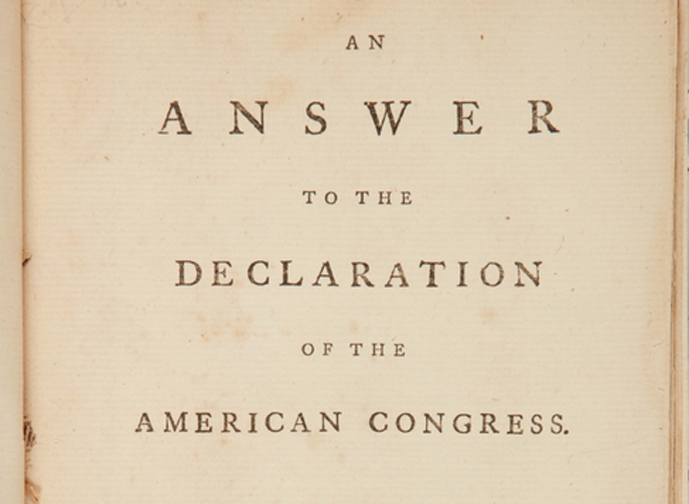On June 14, 1775, the Second Continental Congress officially announced the creation of the Continental Army, a military force representing all of the colonies resisting British authority in North America. The following day the Congress named the army’s commander. George Washington, a planter and Congressional delegate from Virginia, would become the commander-in-chief, taking command of the armed forces then encamped outside Boston, Massachusetts.
The Continental Army, as yet, existed only on paper. But there was indeed an army outside Boston waiting for the newly-minted General Washington. That army included militiamen from Massachusetts, New Hampshire, Connecticut, and Rhode Island, who had answered the call to arms in the wake of Lexington and Concord in the spring of ’75. It wasn’t a particularly good or efficient army. Still, the men were armed, housed, fed, and willing to serve, and though they were anxious to meet their new general it wasn’t because they lacked leadership. They already had a general: forty-six year-old Artemas Ward of Massachusetts, a politician and public servant.
History has not been kind to Artemas Ward. The same, of course, could be said for many of the early leaders of the Revolution, who did not have the good fortune to be associated directly with George Washington. Artemas Ward tops them all. Usually historians ignore him, and when they bother to mention Ward at all they see him as Washington did: as a soft, indolent commander, a military incompetent, a would-be general so fat that he couldn’t mount a horse. In the story of the Revolution, Artemas Ward comes down to us as the man who couldn’t build an army to Washington’s satisfaction, the man who very nearly allowed the American cause to die a violent and ignominious death at Bunker Hill. He’s the anti-Washington, a third-rate actor in the Revolutionary drama, who serves only to highlight Washington’s greatness by prominently displaying his own considerable shortcomings.
And that’s unfair, because Artemas Ward—the first commander of what would become the Continental Army, the first commander-in-chief of the Revolution—was essential to American success.
This begins an exciting new article by historian Paul Lockhart in the collector’s print edition of Journal of the American Revolution. To read Lockhart’s full article, purchase the collector’s hardcover edition of Journal of the American Revolution, now on sale.
***Buy the book from Amazon
***Buy the book from Ertel Publishing (more proceeds go to support this and future Journal of the American Revolution projects)










4 Comments
Just received my copy of the hardcover Journal of the American Revolution. It is wonderful. Keep up the good work.
Thanks for letting us know, Claude! We appreciate the support!
An added bit of historical minutia. The Journals of the Continental Congress originally listed Ward as “first major general and second in command,” but the last four words were stricken out.
Without General Artemas Ward there would likely be no United States of America!